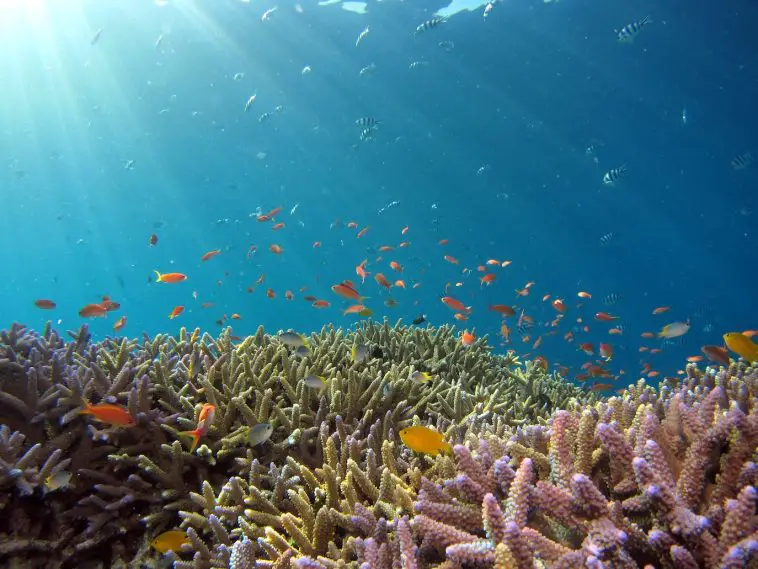Do you ever find yourself daydreaming of a unique and exciting career that pays well? Have you considered underwater welding? It’s an occupation that can take you to the depths of the sea, and open up plenty of financial opportunities. If this is something that interests you, then read on to learn more about how much money an underwater welder makes!
Page Contents
Job Requirements for Underwater Welders
Underwater welding is a demanding trade requiring high levels of skill, knowledge and experience. It requires specialized training, certification and licenses to perform the job safely and effectively. To become an underwater welder, there are certain requirements that must be met in order to enter this field of work.
The most important requirement for becoming an underwater welder is the ability to swim. Underwater welders spend time submerged in water while they do their jobs so having good swimming skills is essential for success in this profession. Along with being able to swim proficiently, applicants should also possess physical strength and stamina as well as good coordination so they can move easily under water without fear or panic.
In addition to these physical qualifications, prospective welders need a strong academic background including knowledge of physics, engineering principles and mathematics necessary for determining angles distances and calculations during welding operations along with understanding all safety protocols related to the job itself such as proper use of equipment, working conditions at depths etc.. Welders must also have excellent communication skills since they will often work closely with supervisors or other team members both above water level onshore or offshore platforms alike.
Finally it’s imperative that any would-be underwater welder possesses a certificate from an accredited school which verifies completion of UWW (Underwater Welding) courses covering topics like: methods & techniques used by professional divers; gas tungsten arc welding processes; dealing with extreme pressure environments; corrosion control procedures; health & safety regulations etc.. Once certified divers may opt into getting additional certifications such as Commercial Dive Leader(CDL), Diver Medic Technician (DMT) depending upon desired career trajectories within this sector.
How Much an Underwater Welder Make
Underwater welding is an incredibly rewarding and lucrative career choice. It requires a great deal of skill, training and courage, but the rewards are worth it for those willing to take on this challenging profession. For starters, underwater welders make significantly more money than their land-based counterparts due to the dangerous nature of their work. According to Indeed , entry-level underwater welders can expect salaries ranging from $50,000 to $90,000 per year depending upon experience and qualifications. With that said, experienced professionals may earn six figures in some cases!
In addition to higher pay rates than most traditional welding jobs offer, underwater welders also enjoy other benefits such as generous health coverage plans and retirement packages. Furthermore, employers often provide extra compensation for hazardous working conditions or long hours spent offshore away from home. Moreover they sometimes receive additional bonuses when completing difficult assignments successfully or staying in positions beyond expected timeframes.
Additionally there are opportunities for advancement within the field of underwater welding including foreman roles with added responsibility as well as potential promotions into management positions over time which come with even greater financial returns! Lastly job security is excellent since demand exceeds supply meaning qualified individuals will have no shortage of options when it comes to finding employment or pursuing related projects with existing organizations they’re already familiar with operating within this industry niche market sector .
Career Outlook of Underwater Welding
Underwater welding is a highly sought-after career path, as it offers a unique and exciting way for welders to make an impact. As the world’s population grows and demand for resources increases, underwater welding has become increasingly necessary to keep up with the demand. It requires specialized skills and knowledge that are not found in traditional welding jobs on land, making it a unique field of expertise that can be very lucrative.
The job outlook for underwater welders is strong, with numerous opportunities available in various industries from oil & gas drilling to ship repair. Underwater welders must have excellent physical fitness due to their long working hours spent under water – often requiring them to work at depths of up to 200 feet below sea level – and they need excellent swimming ability as well as knowledge of how pressure affects different materials used in their work. Additionally, safety protocols must be meticulously followed for any task performed by an underwater welder or any other personnel involved on site.
Given all this, those looking into becoming professional underwater welders should expect competitive salaries commensurate with their skill set; most companies will also offer benefits like health insurance as well medical evacuation coverage in case something goes wrong while they’re out at sea. On top of these perks many employers also provide extra training sessions so that employees stay current with industry standard practices related to diving safety and equipment maintenance. With the right qualifications and experience combined with hard work ethic one can easily find themselves climbing high within this field fairly quickly!
Industries Hiring Underwater Welders
Underwater welding is a highly specialized skill that requires extensive knowledge and training. With the right qualifications, it can be an incredibly rewarding job as underwater welders are in high demand around the world. From commercial to military industries, underwater welders have become indispensable in many fields.
In commercial industries, offshore oil rigs are one of the most common places to find an underwater welder’s services needed. These welders must have expertise in metal fabrication and repair for any leaks or damages on these platforms located hundreds of feet below the surface of the ocean. Maritime trade also calls upon experienced divers with welding skills to build new vessels or repair existing ones while they remain afloat at sea.
Military operations rely heavily on certified divers who specialize in welding technology under water conditions. Underwater explosives require careful placement by a trained diver who can work efficiently and safely even when dealing with hazardous materials such as munitions detonated from nearby ships or submarines during war time scenarios. Moreover, military personnel use this service when repairing damaged submersibles used for intelligence gathering missions – thus requiring skilled professionals with diving experience as well as strong technical know-how in welding processes and techniques.
Working Conditions of an Underwater Welder
Underwater welding is a dangerous yet rewarding profession. It requires a special set of skills and training, as well as the right mindset to be able to work in an environment that’s both physically and mentally demanding. Underwater welders are highly paid professionals who dive deep into the depths of the ocean or other bodies of water to make repairs and join metal pieces together.
The job can involve working with hazardous materials such as gas, electricity, explosives and heat, so underwater welders must be able to follow strict safety procedures at all times. They typically wear thick protective clothing made from rubber or neoprene which helps protect them against cuts, burns, electric shock and extreme temperatures. In addition they use specialized diving equipment including face masks for communication between divers and topside personnel; air tanks; helmets; boots; gloves; lifeline tethers for safety reasons during dives; lighting systems for visibility under low-light conditions; hoses connected to topside pumps used to supply additional air when necessary while underwater etc..
Underwater welding has its own unique set of challenges that require physical strength and endurance combined with technical expertise. Welders may have exposure to extreme temperatures ranging from -50 degrees Fahrenheit in cold waters up north -or even colder–to over 100 degrees Fahrenheit in tropical waters down south – on top of huge pressure changes caused by large waves or currents which can cause panic attacks if not trained properly. Working hours can also add up due to extra time spent getting ready before each dive: securing gear like wetsuits/drysuits/gloves/boots/helmet etc., checking oxygen levels & tank pressure or suiting up –which could easily take anywhere from 1-2 hours depending on experience level– plus time spent decompressing after each dive since nitrogen bubbles expand quickly at greater depths causing “the bends” (decompression sickness) if neglected!
Safety Considerations for Underwater Welding
Underwater welding is a specialized field that requires special safety considerations. This hazardous job puts the welder at risk of electrocution, hypothermia and decompression sickness. As such, it’s important to ensure the highest level of safety while performing this work in order to protect both the welder and those around them.
The first step when it comes to underwater welding safety is proper preparation. Before any welding takes place, welders need to have all their protective gear ready including a dry suit, boots and gloves as well as an air tank for breathing under water. A diver’s knife should also be kept on hand in case of emergency or entanglement during the dive. Once properly prepared with all necessary equipment, welders must then conduct thorough inspections of their tools and machinery before commencing work – ensuring everything is set up correctly for a safe dive session without any potential hazards present.
Welding itself poses its own risks which are often compounded by working underwater; electric shocks can cause cardiac arrest so extreme caution needs to be taken when operating power sources below surface level where there may be high levels of electrical interference caused by nearby structures or currents from other vessels in close proximity. It’s also essential that divers remain aware of their surroundings at all times while they’re submerged – looking out for any potential obstructions or dangers that could put them at risk during the duration of their task (such as boat propellers!). Lastly, appropriate rest periods between dives should always be observed in order prevent fatigue-related accidents due to overexertion or exhaustion from long hours spent underwater working on projects uninterruptedly.
• Prepare thoroughly with quality protective gear & perform inspections prior to diving
• Exercise extreme caution when using power sources near high levels electricity interference
• Remain aware & mindful off one’s environment at all times
• Take regular breaks from diving sessions
Wrapping it Up!
In conclusion, underwater welding is a specialized and challenging field of work. Working as an underwater welder requires extensive experience in the manufacturing industry, as well as certification to ensure safety standards are met. The salary for this type of job can range from $30,000 – $90,000 depending on experience and location. Despite the potential risks involved with working in deep waters and hazardous conditions, many industries have seen its value by hiring experienced welders for various projects. Therefore if you have the skillset required for this job and are looking for a rewarding career that offers competitive compensation then look no further than becoming an underwater welder today!
how much does a underwater welder make
Frequently Asked Questions!
An underwater welder’s salary can vary widely depending on their specific job duties, experience level and geographic location. According to the Bureau of Labor Statistics, median pay for welders was $41,380 in 2019. Underwater welders typically earn higher wages due to the specialized nature of their work and its associated risks.
What Are The Dangers Of Underwater Welding?
Underwater welding carries a unique set of risks compared to other forms of welding due to its environment and the need for divers to be properly trained. There are several potential hazards including electric shock from faulty equipment or improper grounding; decompression sickness caused by working at depth for extended periods; overexposure to ultraviolet radiation; physical stress from heavy lifting or awkward positions; and general safety issues related to diving such as entanglement with debris or oxygen toxicity. It is essential that underwater welders take appropriate safety precautions while performing this type of work.
How Long Does It Take To Become An Underwater Welder?
It usually takes between three months and two years before one can become an underwater welder depending on existing qualifications, additional training required, time spent practicing skills in a dry environment prior to heading out into open water, experience level desired etc.. Aspiring underwater welders should first obtain certification as a commercial diver before seeking further certification in underwater welding techniques if they wish to pursue this career path professionally.
What Qualifications Do I Need To Be An Underwater Welder?
In addition to being certified as a commercial diver, professional-level certification from AWS (American Welding Society) is often required for those interested in becoming an underwater welder – completing courses on shielded metal arc welding (SMAW), gas tungsten arc welding (GTAW), flux core arc welding (FCAW) etc.. Depending on jurisdiction regulations may also require more advanced certifications such as Certified Hyperbaric Welding Technician / Supervisor (CHWT/S). Furthermore having previous scuba diving experience and knowledge about electrical systems can also help when it comes down getting hired for these types of jobs.
What Types Of Jobs Can I Expect From Being A Professional Underwater Welder?
Professional underwater welders may find employment with offshore oil companies doing repairs on pipelines submerged under oceans or seas around the world; marine construction firms building bridges over waterways; shipyards repairing damaged vessels during long term layovers at dock etc.. Additionally they could potentially find employment providing services related but not limited too inspection & maintenance operations like cutting away stuck anchors/fishing gear off sunken ships bottoms during salvage projects or even installing new components like piers/buoys/moorings onto large boats etc…




